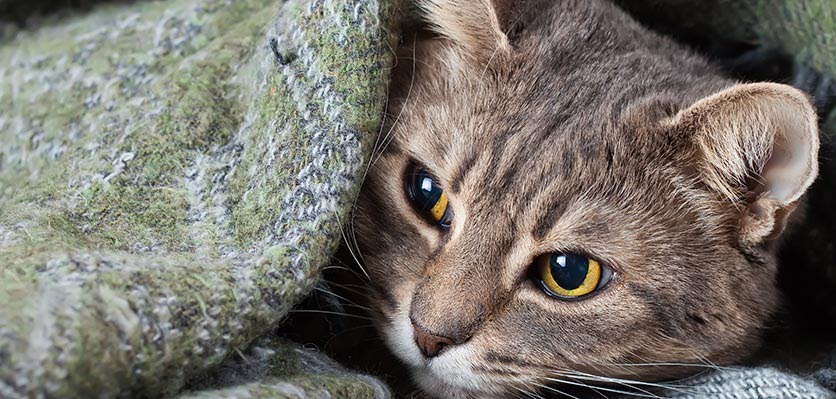
Cats can suffer from various viral illnesses. Feline infectious peritonitis or FIP for short, is one of these viruses. FIP is a viral disease mostly seen in young cats, and whilst it is relatively uncommon, when it does occur, it is frequently fatal. Until relatively recently, the treatment options for affected animals were generally limited to the provision of palliative care or euthanasia to relieve suffering, however recent use of an anti-viral medications in affected cats may hold some promise for more effective treatment.
FIP occurs due to mutation of the relatively benign but very common feline coronavirus (FCoV) (which forms part of the recommended yearly vaccination schedule for cats) into the more aggressive feline infectious peritonitis virus (FIPV), which a small percentage of cats are unable to develop protective immunity to. This is reported to occur in about 1% of FCoV cases.
Affected cats most commonly become unwell - showing signs of lethargy, fever and inappetence, and they can develop fluid accumulation either in their belly or chest, and/or inflammatory lumps in various organs (most commonly the eyes, brain, lungs, or abdominal organs).
Until recent times, there have been no reliable treatments for FIP despite extensive veterinary research. Immunomodulatory drugs such as omega-interferon have been trialled for their antiviral effects, generally with no significant improvement in survival times or quality of life. Current research continues on mefloquine, a human antimalarial drug with antiviral effects.
The latest development in FIP treatment
During the COVID-19 pandemic, the antiviral drug Remdesivir was quickly considered as a potential treatment option for the newly discovered human virus. Remdesivir also appears to be an effective and apparently non-toxic FIP treatment in cats, however the drug has not been available in veterinary medicine until recently.
Whilst Remdesivir is currently reserved for human COVID-19 usage in the USA (due to their current COVID-19 status), an Australian veterinary drug company has obtained the formula to allow reliable manufacturing of Remdesivir, thereby making it available for feline usage within Australia when prescribed “off-label” by a veterinarian.
In small-scale veterinary treatment trials so far, Remdesivir appears to be highly effective for managing FIP, with feline patients showing rapid improvement in symptoms within three days of starting therapy. A Remdesivir treatment course currently requires significant financial commitment from the pet’s owner, although the cost is expected to decrease if more widespread usage ensues in the future.
Some Australian vets with a special interest in FIP are now becoming familiar with the usage of Remdesivir and are accepting referrals for courses of treatment. It is hoped that with ongoing dedicated veterinary research, FIP will come to be considered a readily-treatable illness.
